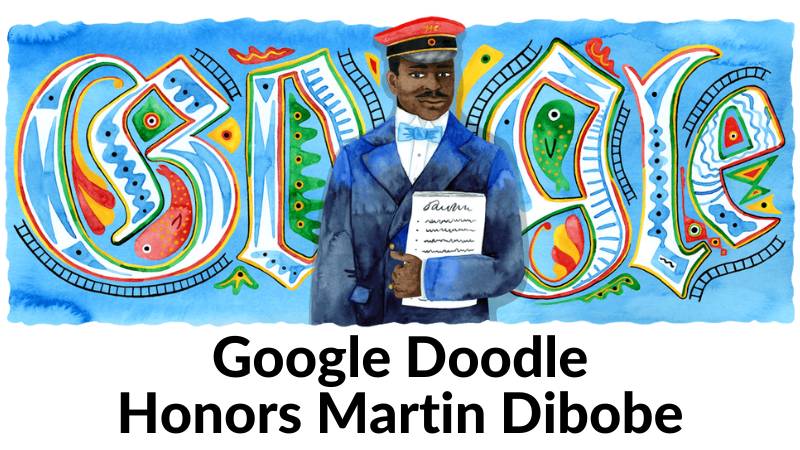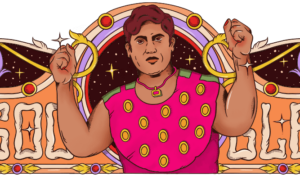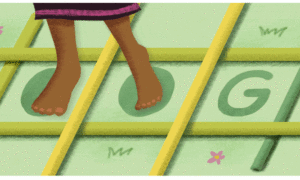Martin Dibobe, a Cameroonian train driver, is honored in today’s Doodle, which is illustrated by guest artist Helene Baum-Owoyele, who is based in Berlin. Dibobe and 17 other Africans petitioned the German government on this date in 1919 for civil rights and independence for all citizens of Germany’s colonial empire.
Dibobe was born in Cameroon in 1876, when it became a German colony. He attended a missionary school and learned to read and write as the son of a Douala chief. Dibobe and many other Africans who lived in Berlin at the time were required by the German government to participate in an ethnographic display that was intended to educate Germans about African daily life and garner support for colonialism. Dibobe and 100 other Africans were transported to Berlin by steamboat in 1886.
Dibobe lived in terrible conditions for six months and made an appearance in Berlin’s Treptower Park as an “exhibit” of African life. Following that, he remained in Germany and began working as a locksmith in a nearby factory before falling in love with a German woman. They later got married with the help of a clergyman, despite the fact that the registry office refused to record their union.
After that, Dibobe got a job at the Berlin subway system and rose through the ranks until he became the city’s first Black train driver. He advocated for African rights throughout the empire because he was dissatisfied with his social standing. Around 1907, it is believed that the German government sent Dibobe back to Cameroon to assist in the construction of a new railway line. He discussed equal rights with chiefs in his home country during this time.
Germany gave up its colonies to France and Great Britain following the 1919 Treaty of Versailles. In order to make an appeal to Germany’s National Assembly, Dibobe gathered other advocates. The 32 demands in the Dibobe petition for equal rights for African migrants in the country were ignored by the government.
When Dibobe tried to return to Cameroon in 1922, the French refused to let him in. After that, he went to Liberia, where he probably died. At his former Berlin address, a plaque honors Martin Dibobe’s efforts today. Dibobe always stood up for African rights in the face of blatant racism and set an example for other activists to follow.
Thank you, Martin Dibobe, for being a model for future Black independence advocates.
- Top 3 Cryptocurrencies To Purchase In May After A Dip - May 14, 2024
- Beginner’s Guide: How to Invest in Crypto Safely and Wisely - May 14, 2024
- Mastering Money: 4 Essential Financial Strategies for Entrepreneurs - May 14, 2024





